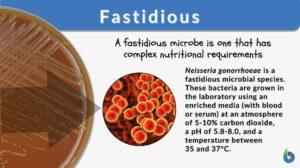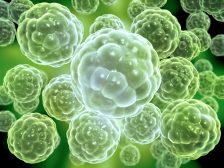Search Results for: pressure sense
Osmotic pressure
Osmotic Pressure Definition Osmotic pressure is the pressure caused by a difference in the amounts of solutes (or... Read More
Residual volume
Residual volume is a term that is most often seen in lung physiology where it is defined as the amount of air remaining in... Read More
Tactile sense
Definition noun The sense of touch where contact, pressure or traction exerted on the skin as well as in some internal... Read More
Equilibrium
Equilibrium Definition In Biology Equilibrium refers to the state of balance and stability. In biology, equilibrium is... Read More
Diaphoresis
What is Diaphoresis? Diaphoresis is referred to excessive or profuse perspiration or sweating which may be due to... Read More
Growth and Plant Hormones
Growth All living organisms begin in the same form: as a single cell. That cell will divide and the resulting cells will... Read More
Nervous System
THE is the most complicated and highly organized of the various systems which make up the human body. It is the... Read More
Adipose tissue
Adipose Tissue Definition Adipose tissue, a specialized variety of connective tissue, is composed of lipid-rich cells known... Read More
Sensory Systems
A sensory system is a part of the nervous system consisting of sensory receptors that receive stimuli from the internal and... Read More
Fastidious
Fastidious Definition We can define fastidious as a term used in microbiology to denote a species that lacks the ability to... Read More
Sensory neuron
Definition noun, plural: sensory neurons A type of neuron that transmits sensory nerve impulses Supplement The neurons are... Read More
Chronobiology
Chronobiology Definition Chronobiology is a branch of biology that studies time-related phenomena (e.g., biological... Read More
A Look Into Natural Selection and its Mechanisms
Charles Darwin is credited with outlining the fundamentals of evolution. He was a smart and eager pupil and protégé, and... Read More
Integumentary system
Integumentary System Definition The integumentary system is the outermost layer of the body. The animal body, in... Read More
Crown of head
Crown of Head Definition The crown of the head is the upper dorsal part (or area) of the head. Several creatures have... Read More
Y chromosome
Y chromosome Definition The Y chromosome constitutes one member of the pair of sex chromosomes within an organism, a common... Read More
Bolus injection
A bolus injection is the act of administering a dose of medication or substance directly into the bloodstream by injection.... Read More
Mechanoreceptor
Definition noun, plural: mechanoreceptors A sensory receptor chiefly in the skin or in the body surface of an organism used... Read More
Genetic variability
Genetic Variability Definition Genetic variability refers to the tendency of individual genetic characteristics in a... Read More
Ecological niche
Ecological Niche Definition An ecological niche refers to the interrelationship of a species with all the biotic and... Read More
Biological clock
Definition noun, plural: biological clocks Any of the various mechanisms that regulate biological rhythms Supplement A... Read More
The Evolution of Cell Organelles
The previous tutorial page noted the emergence of protists, organisms that possessed a distinct cell nucleus and contained... Read More
![Osmotic pressure n., plural: osmotic pressures [ɑsˈmɑtɪk ˈpɹɛʃ.ɚ] osmotic pressure definition and example](https://www.biologyonline.com/wp-content/uploads/2020/11/osmotic-pressure-definition-and-example-300x168.jpg)

























